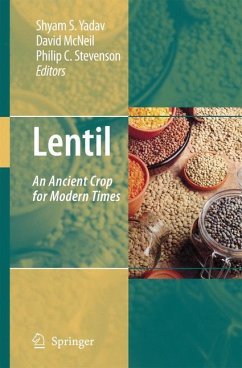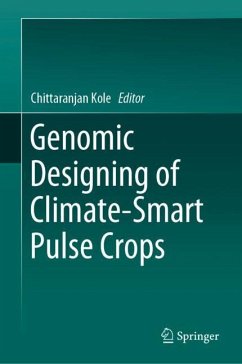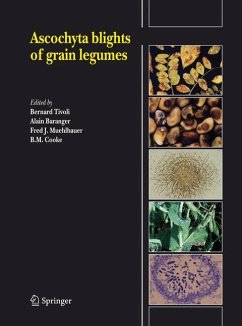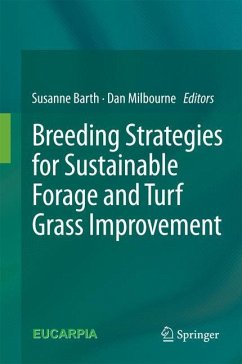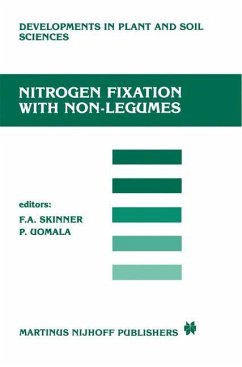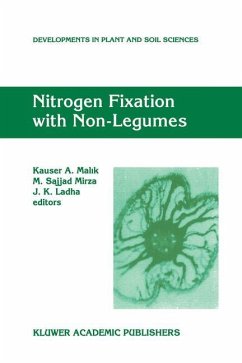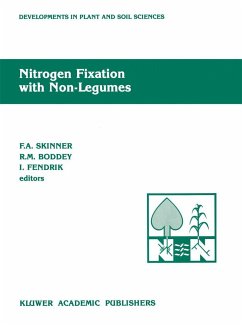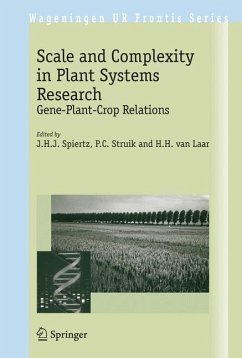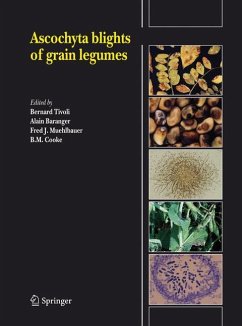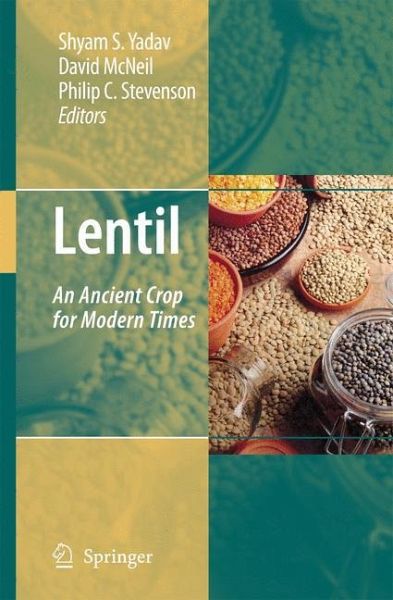
Lentil
An Ancient Crop for Modern Times
Herausgegeben: Yadav, Shyam S.; McNeil, David; Stevenson, Philip C.

PAYBACK Punkte
57 °P sammeln!
On behalf of the United States Department of Agriculture, I am pleased to introduce the book Lentil: An Ancient Crop for Modern Times. The articles and essays in this volume, submitted by nearly 100 researchers, educators, and other experts, contain comprehensive information on a variety of topics of significance for lentil growers, researchers, and consumers worldwide. Cultivated lentils (Lens culinars), an annual legume crop, have been grown as an important food source for over 8,000 years. They come in two main varieties: macrosperma (with large seeds and little pigmentation), and microsper...
On behalf of the United States Department of Agriculture, I am pleased to introduce the book Lentil: An Ancient Crop for Modern Times. The articles and essays in this volume, submitted by nearly 100 researchers, educators, and other experts, contain comprehensive information on a variety of topics of significance for lentil growers, researchers, and consumers worldwide. Cultivated lentils (Lens culinars), an annual legume crop, have been grown as an important food source for over 8,000 years. They come in two main varieties: macrosperma (with large seeds and little pigmentation), and microsperma (with small seeds and some pigmentation). Depending on their variety and breed, however, lentil seeds can range in color from red-orange, to yellow, green, brown, or black. They are cultivated and consumed throughout the world, with Canada, Turkey and India being the top producers. Although the production of lentils and other pulse legume crops lags far behind cereal production in most nations, including the United States, production remains highly important because of its benefits for producers and consumers alike. Lentil seeds provide high levels of protein and, when consumed in combination with cereals, they provide adequate amounts of essential amino acids for the human diet. Their relatively short cooking time provides an additional advantage. Lentil production is equally beneficial for producers, as lentils have a high tolerance for extreme environmental conditions such as drought and hot temperatures, and can be grown in semiarid regions without irrigation.



